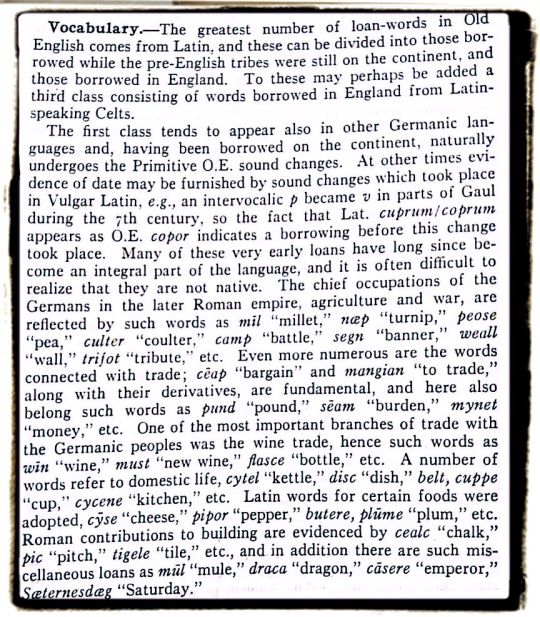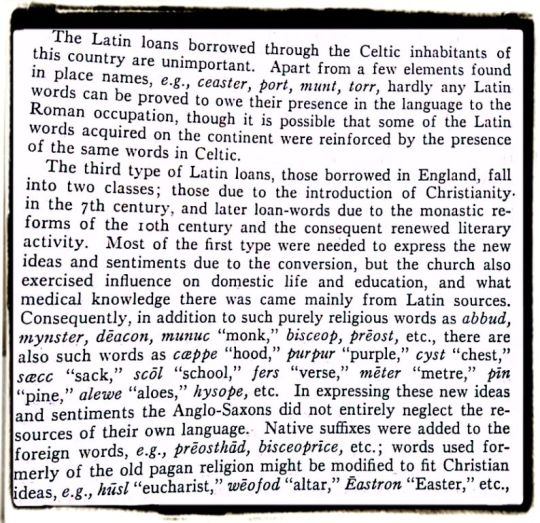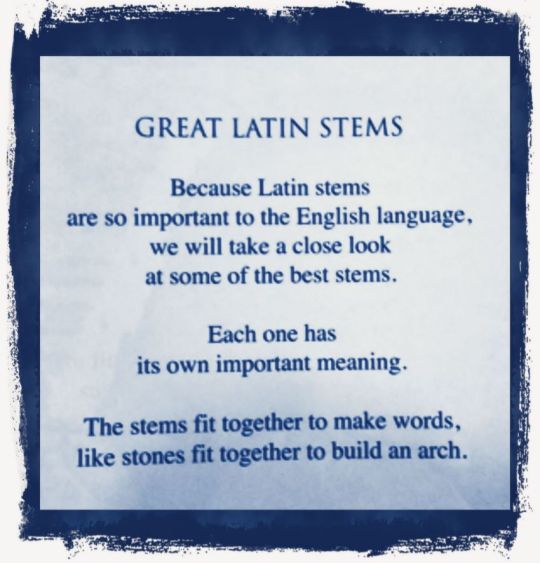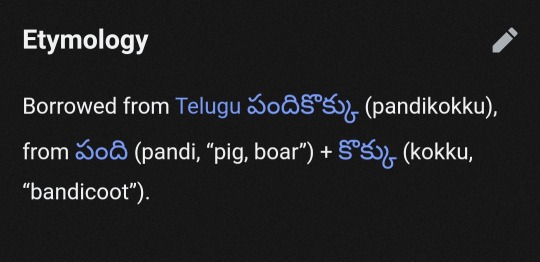#loanwords
Note
Okay, I've got a language question for you:
Why would native Thai speakers accentuate (as they seem to) the last syllable of English-language nouns, proper and common ? Is there something in their own tongue that would have led to this practice ?
Isn't it the best thing ever?
My favorites are strawberry & blueberry.
sounds like
sa-tawh-bur-rEEE
boo-bur-rEEE
Okay, so the first thing is, mostly in Thai, consonant noises don't exist without vowel noises attached.
The easiest way to think about this is the name Sky (think about it particularly in SCOY, but also LITA). The S+K can't really exist together, they need a ahh vowel noise to break them.

The way it's said in Thai is:
Sah'kai
Remember that?
The ' indicates a glottal stop (slight hitch in speaking). You have to kind of stop the breath from the "sah" by rolling your tongue up towards the roof of your mouth to then say the hard "k." If you know how to say the formal sah'wah dEE, you'll know how to execute that. And that's because sk can't really be said together in Thai.
To answer your question, it depends on the sound the loanword converts into for Thai comprehension/execution.
For example: "bur" is an adapted loanword (from the English for "phone number") but they actually drop tone the end of that word. Which may sound, to English speakers, like a de-emphasis. In fact "bur" shows up all the time in BL but most English speakers don't realize it's a loaner. See UWMA Dean getting Pharm's digits.

What you're picking up on is most likely the ah and ee sounds, which in Thai are often tonally pushed up in loanwords. It's not really emphasis as we think of it - it's the use of a non-tonal word in a tonal language. Those sounds are simply said that way when they are placed in those parts of words in Thai.
Like, how some people have a really hard time rolling their rr's. Or pronouncing the ø. Or the w (many native Mandarin speakers will say it as a v).
It's the way those sounds are shaped in the mouth in that part of the world.
Language trains the human brain so there are also some sounds it's very hard for speakers of a different language to even hear. I really struggle with some Thai tones, myself.
71 notes
·
View notes
Text
Oh well huh, speaking of substrates and Egyptian etc.: here's a brand new article proposing a former Afrasian branch in the Balkans, substratal to Proto-Indo-European
and yes this does at least sound like it would work better than trying to make PIE and PSem neighbors, or projecting binary Semitic–IE comparanda into Nostratic. TBD if anything more comes of this idea later on…
90 notes
·
View notes
Text

#language jokes#langblr#language#language blog#languageblr#language meme#language memes#linguistics#linguistics humor#language learning#english#linguistics memes#linguistics blog#loanwords#lingblr#language lover#lingblog#linguistics tumblr#languages#linguistics jokes#wordle#target language
176 notes
·
View notes
Text

Lorenzo Dow Turner (1890 –1972)
Was an academic and linguist who conducted seminal research on the Gullah language of coastal South Carolina and Georgia. He earned a master's degree from Harvard and a Ph.D. from the Univ. of Chicago. He taught at Howard Univ. (1917-1928) and Fisk Univ. (1929 – 1946) and traveled West Africa, identifying over 300 (Mende, Vai, Fulani) Gullah loanwords and 4,000 personal names. He published his findings in his book “Africanisms in the Gullah Dialect (1949).
#african#afrakan#kemetic dreams#africans#brownskin#brown skin#afrakans#african culture#afrakan spirituality#lorenzo dow turner#gullah#gullah language#university of chicago#fulani#mende#vai#loanwords#africanisms#gullah dialect#south carolina#georgia
48 notes
·
View notes
Text
One thing that always really throws me is when a language uses a loanword for something that the language cannot possibly need a loanword for.
If you ask google translate to tell you the Korean word for "soup," it lists 5 possible translations.
Option No. 1 is a transliteration of the English word "soup." Option No. 3 is a transliteration of the Mandarin Chinese word for soup. Option No. 5 is a transliteration of the English word "nitroglycerin."
::softly whispers "what the fuck"::
#I feel like that last one must be a Fast and the Furious pop culture reference or something#because nitro is used to “soup up” cars in car racing#linguistics#loanwords
130 notes
·
View notes
Text
#euskadi#euskal herria#basque country#pais vasco#pays basque#spanish#castellano#words#languages#polls#linguistics#vocabulary#loanwords
47 notes
·
View notes
Text
I think that one of my favourite language facts is about how in English, the word "calque" is a loanword from French, and the word "loanword" is a calque from German "Lehnwort".
33 notes
·
View notes
Text
Latin influence in the English Language


Latin influence on English
Latin influence in the English Language and vocabulary through the centuries. A computerised study and statistical analysis.
English belongs to the Anglo-Frisian group within the western branch of the Germanic languages, a subfamily of the Indo-European languages. It is related most closely to the Frisian language, to a lesser extent to Netherlandic (Dutch-Flemish) and the Low German (Plattdeutsch) dialects, and more distantly to Modern High German. Therefore English is a Germanic language, having a grammar and core vocabulary inherited from Proto-Germanic. However, a significant portion of the English word hoard comes from Romance and Latinate sources. Estimates of native words (derived from Old English) range from 20%–33%, with the rest made up of foreign borrowings. (These estimates, however, are based on the total raw counts of dictionary entries, where the frequency of use for most non-native words is low to nil.
The English vocabulary has increased greatly in more than 1500 years of development. The most nearly complete dictionary of the language, the Oxford English Dictionary (13 vol., 1933), a revised edition of A New English Dictionary on Historical Principles (10 vol., 1884-1933; supplements), contains 500,000 words. It has been estimated, however, that the present English vocabulary consists of more than 1 million words, including slang and dialect expressions and scientific and technical terms, many of which only came into use after the middle of the 20th century. The English vocabulary is more extensive than that of any other language in the world, although some other languages - Chinese, for example - have a word-building capacity equal to that of English.

English and Latin
Extensive, constant borrowing from every major language, especially from Latin, Greek, French, and the Scandinavian languages, and from numerous minor languages, accounts for the great number of words in the English vocabulary. In addition, certain processes have led to the creation of many new words as well as to the establishment of patterns for further expansion. The true percent of native words used in everyday spoken and written English actually ranges from 75%–90%.
A large number of these borrowings come directly from Latin, or through one of the Romance languages, particularly Anglo-Norman and French, but some also from Italian, Portuguese, and Spanish; or from other languages (such as Gothic, Frankish or Greek) into Latin and then into English. The influence of Latin in English, therefore, is primarily lexical in nature, being confined mainly to words derived from Latin roots.
The number of Latin words, many of them derived from the Greek, that were introduced during the Old English period has been estimated at 140. Typical of these words are altar, mass, priest, psalm, temple, kitchen, palm, and pear. A few were probably introduced through the Celtic; others were brought to Britain by the Germanic invaders, who previously had come into contact with Roman culture. By far the largest number of Latin words was introduced as a result of the spread of Christianity. Such words included not only ecclesiastical terms but many others of less specialized significance.

Latin and English
In the early part of the Modern English period the vocabulary was enlarged by the widespread use of one part of speech for another and by increased borrowings from other languages. The revival of interest in Latin and Greek during the Renaissance brought new words into English from those languages. Other words were introduced by English travelers and merchants after their return from journeys on the Continent. From Italian came cameo, stanza, and violin; from Spanish and Portuguese, alligator, peccadillo, and sombrero. During its development, Modern English borrowed words from more than 50 different languages.
For instance, the great poet John Milton, as a Renaissance man, was profoundly familiar with classical learning and his works abounds with classical references, which are often used to describe aspects of Christian belief. The wide use of classical and biblical sources is an important element of what is known as Milton's "Grand style". Other stylistic features contribute to the grandeur of Milton's epic poetry, epic simile for example is a technique he often employs following the Homeric and Virginian style. Another important element is the language he used. In keeping the high seriousness of his subject, he tended to use solemn and rather grandiose language, instead of plain simple English, so he often used words that derived from Latin or Italian, and also his syntax was heavily influenced by these two languages.
Word origins. A computerised survey of about 80,000 words in the old Shorter Oxford Dictionary (3rd ed.) was published in Ordered Profusion by Thomas Finkenstaedt and Dieter Wolff (1973) that estimated the origin of English words as follows:
Influences in English vocabulary Langue d'oïl, including French and Old Norman: 28.3%
Latin, including modern scientific and technical Latin: 28.24%
Germanic languages – inherited from Old English, from Proto-Germanic, or a more recent borrowing from a Germanic language such as Old Norse; does not include Germanic words borrowed from a Romance language, i.e., coming from the Germanic element in French, Latin or other Romance languages: 25%
Greek: 5.32%
No etymology given: 4.03%
Derived from proper names: 3.28%
All other languages: less than 1%

Latin influence on English
A survey by Joseph M. Williams in Origins of the English Language of 10,000 words taken from several thousand business letters gave this set of statistics:
French (langue d'oïl): 41%
"Native" English: 33%
Latin: 15%
Old Norse: 5%
Dutch: 1%
Other: 5%
Based on the above, the percentage of Latin words used in formal business context (15%) is substantially lower than that of the dictionary survey (28.24%) due primarily to the effects of linguistic register, where the vast majority of Latin words in English tend to be of a scientific or technical nature, or consist of words which are rarely to never used (i.e. are functionally obsolete).
Loanwords from Latin
The English language has borrowed extensively from the Latin language beginning during the Germanic period before English was English through the Old English period and up to the early Modern English period. The earliest Latin loanwords date from the period before the Germanic tribes invaded England under invite from the Britons. Latin borrowings continued throughout the Old and the Middle English period, above all Latin influenced the new English language thanks to the literary works of Geoffrey Chaucer, because he knew Latin, French and Italian and admired the main authors who wrote in these languages. English again borrowed heavily from Latin during the Early Modern period that coincides closely with the revival of learning of the Renaissance and with the great dynasties of Tudor (1485–1603) and Stuart (1603-1714) during which many scholars imported many Latin loanwords. Although English is a Germanic language, many common and everyday words are of Latin origin.

Latin influence on English
List of Latin Loanwords
With all the loanwords borrowed from Latin into English, an exhaustive list would be too lengthy to be possible. The following are some of the commonly used Latin loanwords in English:
Agile, abdomen, album, alien, anatomy, animate, animosity, anchor, annual, apostle, area, audio, bacteria, bonus, bovine, butter, Caesar, cancer, canine, capsule, cervix, chalk, cheese, circle, circus, city, civil, chest, church, comet, compensate, color, colossus, complex, consider, contemplate, data, decide, dexterity, deity, discus, disc, disciple, dish, disk, domestic, ego, emperor, equilibrium, erupt, et cetera, excavate, expensive, fauna, feline, feminine, fictitious, flora, floral, formula, fungus, general, genius, genus, gradual, habitual, habitat, honor, id, ignite, immoral, immortality, inertia, infinite, ingenious, insane, interim, janitor, judge, kettle, kitchen, lachrymose, latex, legal, libido, lingua franca, literature, lunar, manual, master, martyr, media, meditate, memento, memorandum, memory, mile, minus, moment, momentum, moral, noble, nocturnal, notorious, opera, orbit, ovum, paper, patron, pauper, pavement, pendulum, peninsula, pepper, percent, persona, physician, plus, pound, propaganda, referendum, regal, revise, rural, sack, series, sex, sickle, similar, simile, status, stimulus, street, subpoena, superego, superintendent, tabula rasa, temple, title, ultimate, vehicle, verbatim, vertigo, vice versa, video, vindicate, wall, wine.
Learn more visiting these useful websites:
https://www.latin-english.com Latin English Dictionary
https://www.etymonline.com Online Etymology Dictionary
You can download the following books on Latin at this page:
Latin Language: Bennett, Charles E.: New Latin Grammar;
D'Oogle, Benjamin L.: Latin for beginners;
Wine, women and songs. Medieval Latin Student's Songs, including translation and commentary by John Addington Symonds.
Or read other articles about the English Language and Literature:
Christianization of Britain, a full article
English, Greek and Latin, a complete article
The Latin Language, a short history
Italian influence on English
English Renaissance, the revival of learning
Short History of the English Language
The essence of English Grammar
Language and grammar
In defence of grammar
The importance of grammar
Short History of the Origin of English
English words origin and vocabulary
History-of-the-English-Language.pdf
British-history-milestones-synthesis
Questions-about-the-english-language
History-of-English-Literature-Summaries.pdf
British_literature_history_chart_summary.htm
General_literature_history_chart_summary.htm
American_literature_history_chart_summary.htm
British_english_history_timeline.htm
http://www.youtube.com/watch?v=_6eYkDhH61Y
More videos;
Latin, the key to English
Latin influence on English
Latin and Greek roots
Read the full article
#Anglo-Norman#dictionary#English#entries#French#germanic#language#latin#loanwords#OldEnglish#OldNorman#Oxford#Romance#words
4 notes
·
View notes
Audio
Lingthusiasm Episode 68: Tea and skyscrapers - When words get borrowed across languages
When societies of humans come into contact, they’ll often pick up words from each other. When this is happening actively in the minds of multilingual people, it gets called codeswitching; when it happened long before anyone alive can remember, it’s more likely to get called etymology. But either way, this whole spectrum is a kind of borrowing.
In this episode, your hosts Gretchen McCulloch and Lauren Gawne get enthusiastic about borrowing and loanwords. There are lots of different trajectories that words take when we move them around from language to language, including words that are associated with particular domains, like tea and books, words that shift meaning when they language hop, like “gymnasium” and “babyfoot”, words that get translated piece by piece, like “gratte-ciel” (skyscraper) and “fernseher” (television), and words that end up duplicating the same meaning (or is it...?) in multiple languages, like “naan bread” and “Pendle hill”. We also talk about the tricky question of how closely to adapt or preserve a borrowed word, depending on your goals and the circumstances.
Read the transcript here.
Announcements:
The LingComm grants have been announced! Thank you so much to everyone who made this possible, and congratulations to all our grantees. Go check out their projects as they keep rolling out over the rest of this year for a little more fun linguistics content in your life.
In this month’s bonus episode, originally recorded live through the Lingthusiasm Discord, we get enthusiastic about your sweary questions! We talk about why it's so hard to translate swears in a way that feels satisfying, how swears and other taboo words participate in the Euphemism Cycle, a very ambitious idea for cataloging swear words in various languages, and more.
Join us on Patreon to listen to this and 60+ other bonus episodes. You’ll also get access to the Lingthusiasm Discord server where you can play and discuss word games and puzzles with other language nerds!
Here are the links mentioned in this episode:
Snopes entry ‘Did Coca-Cola translate its name into a Chinese phrase meaning 'bite the wax tadpole'?’
Auslan.org dictionary entry for ‘ham’
Wikipedia entry for ‘false friend’
@OlaWikander‘s tweet about tungsten
Wikipedia entry for ‘tungsten’
Wikipedia entry for Polish ‘herbata’
The Language of Food blog entry about the etymology of cha/tea
Map of tea vs cha spread via Quartz
WALS entry for words derived from Sinitic ‘cha’ vs words derived from Min Nan Chinese ‘te’
Wikipedia entry for ‘calque’
Wikipedia entry for ‘Uncleftish Beholding’
Lingthusiasm episode ‘You heard about it but I was there - Evidentiality’
‘Morphological Complexity and Language Contact in Languages Indigenous to North America’ - by Marianne Mithun
Wikipedia entry for ‘Pendle Hill’
En Clair - The Pendle Witch Trials
All Things Linguistic post on loadwords creating duplicates (including the TikTok video about pav-roti)
Wikipedia list of tautological place names
You can listen to this episode via Lingthusiasm.com, Soundcloud, RSS, Apple Podcasts/iTunes, Spotify, YouTube, or wherever you get your podcasts. You can also download an mp3 via the Soundcloud page for offline listening. To receive an email whenever a new episode drops, sign up for the Lingthusiasm mailing list.
You can help keep Lingthusiasm advertising-free by supporting our Patreon. Being a patron gives you access to bonus content, our Discord server, and other perks.
Lingthusiasm is on Facebook, Tumblr, Instagram, Pinterest, and Twitter.
Email us at contact [at] lingthusiasm [dot] com
Gretchen is on Twitter as @GretchenAMcC and blogs at All Things Linguistic.
Lauren is on Twitter as @superlinguo and blogs at Superlinguo.
Lingthusiasm is created by Gretchen McCulloch and Lauren Gawne. Our senior producer is Claire Gawne, our production editor is Sarah Dopierala, our production assistant is Martha Tsutsui Billins, and our production manager is Liz McCullough. Our music is ‘Ancient City’ by The Triangles.
This episode of Lingthusiasm is made available under a Creative Commons Attribution Non-Commercial Share Alike license (CC 4.0 BY-NC-SA).
#language#linguistics#lingthusiasm#loanwords#borrowing#etymology#history#words#meaning#pronunciation#episode#episodes#episode 68
84 notes
·
View notes
Text
Are you supposed to capitalize "zeitgeist" in English? It's a loanword from German, which would always capitalize it because it's a noun.
4 notes
·
View notes
Text
エアコン
エアコン> “air con” (A/C)
3 notes
·
View notes
Text

what do they mean borrowed, are they going to give it back?
1 note
·
View note
Text
Crossposting from Twxttxr: some interesting news about ongoing research by colleagues, from a workshop "Diversification of Uralic" just this Thursday and Friday
Do the Permic languages have loanwords from Old Norse? e.g. ONo. ár ~ Komi & Udmurt ar 'year'. This would've been sensible during the brief time when Norsemen originally from Sweden were in charge of trade along the Volga and settling in inner Russia, forming the Rus' (later Slavicized, but as we know from Byzantine sources they remained Norse for centuries) — and also the Norwegians too were known to conduct exploration + trade along the Barents Sea at the time, our oldest written reports of "Bjarmia" come from them after all.
Do the Finnic languages have loanwords already from Pre-Proto-Germanic into Pre-Proto-Finnic? My first reply would've been "yes surely", this has been discussed for half a century and there's dozens of etymologies out by now. Turns out though that there's still a lot of room for skepticism if we try to assemble a big picture. Most of these could be (and have been proposed by other analyses) to be proper Germanic after all, or from some non-Germanic kind of Indo-European, or even incorrect. There is unambiguous evidence I think at least of loans lacking *ā > *ō, but that's already though to be one of the latest common Germanic innovations, perhaps barely post-PG.
[Follow-up question: do we even know where Pre-Proto-Germanic was spoken? might not have been anywhere convenient for contacts with Pre-Proto-Finnic.]
— A few similar problems also in the less discussed supposed layer of Proto-Balto-Slavic or pre-BSl. loans, but by areal considerations it seems obvious to me there must've been Uralic/IE contact somewhere in the Russian forest belt for ages already, even if it might not have left enough evidence to clearly distinguish from things like pre-Indo-Iranian loans.
Do the Samic languages have loanwords that are not from any historically attested branch of Scandinavian, but some sort of a lost variety entirely? This could be an explanation for an unexpected sound correspondence *j → *ć in many loans; it might also explain some loans that look surprizingly archaic, e.g. lacking any reflection of Siever's Law. One example showing both is indeed *Tāńćə 'Norse', from some sort of a *Danji- variant of Proto-Germanic *Daniz.
Several new hypotheses on the history of of sibilants in Ugric, adding to the growing tally of evidence that traditionally reconstructed *s > *θ and *ś > *s "in Proto-Ugric" are actually later developments. A paper supposed to be coming out soon!
No linguistic evidence so far, but a 1670 travelogue by de La Martinière appears to still report seemingly pre-Uralic populations along the Barents Sea coast — and even on Novaya Zemlya, traditionally thought to have been uninhabited (as reported by other early modern explorers) before some Tundra Nenets briefly settled there in mid 19th century. Apparently there's been no real archeological investigation, but also at least two stone labyrinths are known as signs that humans still must've at least visited there sometime in the past.
[By current knowledge, labyrinths from Sweden and Finland have mostly been built in late medieval and early modern times though, so they don't suggest especial antiquity either. Could the ones on NZ in fact have been left behind by some of these historical Northwest European expeditions?]
Various discussion also on the development of Samoyedic. Nothing particularly all-new (maybe on Nganasan, more on that in a PhD thesis to appear later this year though), but a few main results include 1. clear recognition that there is no "North Samoyedic" group (as has been suspected for several years now), 2. confirmation that there is regardless a narrower Nenets–Enets group, and 3. some development of a model where all three of Nenets, Enets and Nganasan may have moved to the tundra zone independently from further down south (as is certainly the case for Northern Selkup, the most recent northern expansion of Samoyedic speakers).
#historical linguistics#loanwords#language contact#archeology#ethnohistory#uralic#finnic#samic#permic#samoyedic#germanic
28 notes
·
View notes
Text
"Untranslatable" is Anglo-centric
Have you noticed that every writeup about “untranslatable words” includes translations of them?
That has annoyed me for years now. It’s othering to the languages of those words. There’s nothing worse or better about words that have no one-to-one translation from their home languages into English. English winds up borrowing them most of the time as loanwords, anyway, because they’re so darn…
View On WordPress
1 note
·
View note
Text
Why are loanwords needful?
I wonder why folk aforetime liked better words from other tongues over words from Germanish upspring. The only ground that comes in mind is ease, it's easier to take an edwistly word from other tongue than to beget one. It makes it seem like it's uneath to come up with words, and aren't enough Germanish roots to do so. But is that all? It seems to me that Anglish is doing well in the outswapping; even if one gets the uneathness of not having a root to make a word for a begetting, it would be comendly to make a new one from scratch. So why did folk still wanted loanwords?
I meaningly wrote the writ above before laiting an answer for this, forwhy I wanted my thought to be written the way it formly came, without neething it being foreswayed. It turns out that there's a ground I didn't think of. It was more than a bare liking, it was, somehow, a walelack. Indeed one can even say that English didn't insooth picked up those words. English was a tongue whose speakers were bestrode by inroading kingdoms, so the upshowing of unGermanish words was a foisting of the inroader's wordstock, an outcome of the Norman's wieldcraft and folkways might in England.
So I believe there's nothing to atwite... We can only berue that we will never cun to truly know what English would look like today without swayings.
1 note
·
View note
Text
Lotsa loanwords

We’re going to try something a little different today. I guess you could call it a “do-it-yourself” Word of the Day. I was trading emails with my friend Sir Walter the other day (and by “the other day,” I mean last July), and he remarked on the number of words we use in everyday English that were imported from other languages without being translated.
Wally gave as examples entrée, schmuck, soufflé, touché, and several others. I said, in my opinion, that’s the greatest strength of English. Our speakers are willing to unabashedly “borrow” words from a multitude of other languages to enhance our own. Authorities in some other countries strive to keep their language “pure,” which is not only kind of stupid, but damn near impossible.
I added to Wally’s list schadenfreude (German), and chutzpah (Yiddish), and hara kiri (Japanese), and pajamas (Hindi), and muesli (Swiss-German), and brouhaha (French), and kerfuffle (Scottish-Gaelic), and…
Well, you get the idea.
So here’s the “do-it-yourself” part: what’s your favorite English word imported from another language? Put it in the comments below, and if there’s a story behind it, so much the better.
I’ll go first. I’ve been trying to drum up support for adoption of the German word “backpfeifengesicht.” I wrote about it here.
I think backpfeifengesicht serves a much-needed role in English. It means “a face badly in need of a slap.”
Your turn.
0 notes